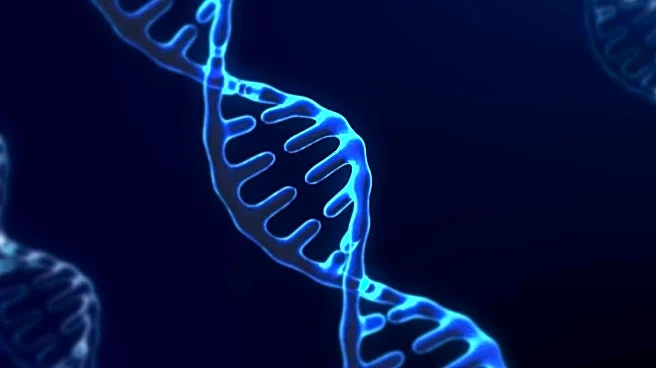What's Happening?
A recent matched cohort study involving 353 Swedish individuals with pathogenic or likely pathogenic variants in the FLCN gene has confirmed an increased risk of colorectal cancer (CRC) and malignant melanoma in patients with Birt-Hogg-Dubé Syndrome (BHDS).
The study utilized data from the Swedish National Register and genetic information from the Karolinska University Hospital, allowing for comprehensive long-term follow-up. The findings indicate a 5-fold increased risk of CRC and a 2-3-fold increased risk of malignant melanoma among BHDS patients. The study also noted a significant risk of kidney tumors, although the exact risk estimates should be interpreted with caution due to the cohort's partial identification through kidney tumor presence.
Why It's Important?
The study's findings are significant as they provide a clearer understanding of the cancer risks associated with BHDS, a rare genetic condition. This information is crucial for healthcare providers in developing targeted screening and surveillance strategies for affected individuals. The increased risk of CRC and malignant melanoma highlights the need for heightened awareness and potentially earlier intervention in BHDS patients. The study also contributes to the ongoing research on the role of the FLCN gene in cancer susceptibility, which could have broader implications for understanding genetic cancer risks beyond BHDS.
What's Next?
Further research is needed to explore the genotype-phenotype correlations in BHDS, as the study suggests that different FLCN mutations may carry distinct cancer risk profiles. Larger studies are required to better define these correlations and to confirm the findings of increased cancer risks. Additionally, the study's results may prompt healthcare systems to consider revising guidelines for cancer screening in BHDS patients, potentially leading to earlier detection and improved outcomes.
Beyond the Headlines
The study underscores the importance of genetic research in understanding complex diseases like cancer. It also highlights the potential for genetic testing to inform personalized medicine approaches, where treatment and prevention strategies are tailored to an individual's genetic risk profile. The findings may also encourage further investigation into the mechanisms by which FLCN mutations contribute to cancer development, potentially leading to new therapeutic targets.















